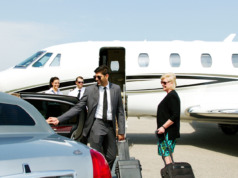
You often may wonder: “Is charter worth it?” The simple answer is: it depends. Both economic and other reasons will have an impact on your decision.
Always start your analysis with realistic expectations. You will never make a profit by chartering out your aircraft. However, charter may allow you to reduce your overall cost of ownership.
A key factor in your analysis will be your aircraft’s “Charter Gross Profit.” This is the net charter revenue paid to you by the charter operator, minus all the direct costs of flying a charter trip. Assuming your aircraft has a positive Charter Gross Profit, charter is worth considering.
When Is Charter Not A Good Idea?
Charter may not be beneficial for you if:
- Your Charter Gross Profit is negative.
- Your Charter Gross Profit won’t be large enough to cover the additional costs incurred to fly charter. For example, you would need an additional full-time or part-time crew member to handle the extra flying.
- Your existing aircraft was not originally equipped to fly charter, and the expense to bring it into compliance with FAR Part 135 regulations (e.g. replacing the flight data recorder) is very large compared to the potential Charter Gross Profit.
- Even when the economics seem favorable, if your schedule is unpredictable, frequently changes at the last minute, and/or you always want your own aircraft available for your own flying, then charter is not for you.
When Is Charter Worth Strong Consideration?
If making your aircraft available for charter will not have an adverse impact on your own flight schedule, chartering may make sense if:
- Your Charter Gross Profit is a large number (e.g. at least 30% of net charter revenue).
- You are flying in your aircraft fewer than 250 hours per year.
- Your crew is willing and has the time to fly the extra hours, while still receiving adequate time off.
- You do not want regulatory responsibility for operational control under FAR Part 91. In that case, shifting regulatory liability to a charter company by operating all your own flights under Part 135 is a good option.
Several other key factors to consider include:
Charter Contract Terms – These can vary greatly among operators. How much will you get per charter hour flown? What charter-related costs are your responsibility, and which are covered by the charter company? How does the scheduling work and who handles that? What are your costs if the aircraft breaks down during a charter trip? Will the charter operator make available any of its fleet discounts to you? How are crew expenses and flight attendant (if applicable) costs handled?
Fuel Efficiency – What is your aircraft’s average fuel consumption per flight hour? Does it have access to one or more good fuel discount programs? The cost of fuel is a major factor in the economics of charter.
Maintenance Status – Your aircraft will need to follow the charter company’s Part 135 maintenance program. Will this requirement increase its maintenance costs? Will extraordinary charter usage increase the engine/APU power-by-the-hour cost? Also consider additional wear and tear and possible damage to the aircraft interior. For older aircraft, the cost of maintenance may be a more important factor than the cost of fuel in evaluating the economics.
Resale Value – What impact will charter have on your aircraft’s resale value? While the extra hours of wear and tear may make it less desirable, qualification as a Part 135 aircraft may make it attractive to potential buyers who want a charter-ready aircraft. And current enrollment on a Part 135 maintenance program also may make it more saleable.
Since every situation is unique, your specific requirements, travel pattern, and preferences should be evaluated to determine if chartering your aircraft is right for you. BAA
David Weil, MBA, CEO, Flight Department Solutions, previously served for 17 years at TAG Aviation USA, and served as President of its subsidiary, AMI Jet Charter. He is a past Chair of NBAA’s Tax Committee.




